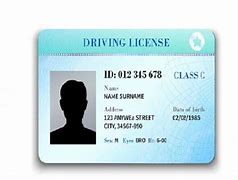Feature
Govt extends date of linking of Aadhaar with bank accounts, mobiles till March 31st

New Delhi: The Central government on Wednesday told the Supreme Court that it will extend till March 31, 2018, the deadline for linking Aadhaar with bank accounts, PAN, mobile numbers and other schemes for those who don’t have the unique identification number and are willing to go for it.
Attorney General K.K.Venugopal said that the government will extend the deadline till March 31 after Chief Justice Dipak Misra, who heads the bench hearing the case, asked him if government was prepared to extend it. The existing deadline, extended by three months after the earlier deadline on September 30, is till December 31.
“The government will be open for the deadline for linking Aadhaar to various programmes being extended for another three months till March 31, 2018, for those who do not have Aadhaar … and are willing to enrol for Aadhaar,” Attorney General K.K.Venugopal told the bench.
Taking note of his statement, the court sought a clarification whether the government would desist from taking any coercive action against those not linking Aadhaar with bank accounts, PAN, mobile numbers and other schemes during this extended period.
Venugopal said that he would come back and respond to the clarification sought by the court on Monday.
The court sought clarification as senior counsel Shyam Divan and Anand Grover appearing for the batch of petitioners urged the court that government should refrain from taking any coercive action not only against those who don’t have Aadhaar but also those who have but consciously not linking with Abank accounts, PAN, mobile numbers and other government schemes.
Govt extends date of linking of Aadhaar with bank accounts, mobiles from Dec 31 till March 31st
He said that if the government assures on this point, they would agree for holding the hearing sometime in February next year, otherwise hearing should take place in first week of November as decided earlier by the top court.
Referring to various complaints of banks making accounts dormant after account holder did not link them with Aadhaar, Divan told the court that Central Board of Secondary Education was insisting on Aadhaar for the students taking class 10 board examination.
“Is this the stage of civil liberty that a school student can’t appear in exam without giving finger prints for Aadhaar,” Divan said insisting that the matter should be heard in the first week of November as it involved the constitutional rights of the people.
On August 30, the bench of Chief Justice Misra, Justice Amitava Roy and Justice A.M. Khanwilkar had said that the challenge to the constitutional validity of the Aadhaar scheme would be heard in the first week of November.
The court had fixed the hearing in the first week of November after the government told the court on August 30 that September 30 deadline for linking Aadhaar with bank accounts, PAN, mobile numbers and other schemes has been extended till December 31.
The hearing on the challenge to the validity of Aadhaar was the next step after top court by its August 24 verdict had declared that the right to privacy was a fundamental right.
The challengers contended that the state could not insist on the citizens to part with their personal data including iris scan and finger prints.
Justice Rohinton Fali Nariman, who was on the bench of nine judges, had in his judgment said that the challenge to the validity of Aadhaar on the grounds of its being violative of right to privacy would be adjudicated by the original bench of three judges in the light of the decision elevating right to privacy as a fundamental right.
Entertainment
Meghalaya Reserves Legalized Gambling and Sports Betting for Tourists

The State Scores Extra High on Gaming-Friendly Industry Index
Meghalaya scored 92.85 out of 100 possible points in a Gaming Industry Index and proved to be India’s most gaming-friendly state following its recent profound legislation changes over the field allowing land-based and online gaming, including games of chance, under a licensing regime.
The index by the UK India Business Council (UKIBC) uses a scale of 0 to 100 to measure the level of legalisation on gambling and betting achieved by a state based on the scores over a set of seven different games – lottery, horse racing, betting on sports, poker, rummy, casino and fantasy sports
Starting from February last year, Meghalaya became the third state in India’s northeast to legalise gambling and betting after Sikkim and Nagaland. After consultations with the UKIBC, the state proceeded with the adoption of the Meghalaya Regulation of Gaming Act, 2021 and the nullification of the Meghalaya Prevention of Gambling Act, 1970. Subsequently in December, the Meghalaya Regulation of Gaming Rules, 2021 were notified and came into force.
All for the Tourists
The move to legalise and license various forms of offline and online betting and gambling in Meghalaya is aimed at boosting tourism and creating jobs, and altogether raising taxation revenues for the northeastern state. At the same time, the opportunities to bet and gamble legally will be reserved only for tourists and visitors.
“We came out with a Gaming Act and subsequently framed the Regulation of Gaming Rules, 2021. The government will accordingly issue licenses to operate games of skill and chance, both online and offline,” said James P. K. Sangma, Meghalaya State Law and Taxation Minister speaking in the capital city of Shillong. “But the legalized gambling and gaming will only be for tourists and not residents of Meghalaya,” he continued.
To be allowed to play, tourists and people visiting the state for work or business purposes will have to prove their non-resident status by presenting appropriate documents, in a process similar to a bank KYC (Know Your Customer) procedure.
Meghalaya Reaches Out to a Vast Market
With 140 millions of people in India estimated to bet regularly on sports, and a total of 370 million desi bettors around prominent sporting events, as per data from one of the latest reports by Esse N Videri, Meghalaya is set to reach out and take a piece of a vast market.
Estimates on the financial value of India’s sports betting market, combined across all types of offline channels and online sports and cricket predictions and betting platforms, speak about amounts between $130 and $150 billion (roughly between ₹9.7 and ₹11.5 lakh crore).
Andhra Pradesh, Telangana and Delhi are shown to deliver the highest number of bettors and Meghalaya can count on substantial tourists flow from their betting circles. The sports betting communities of Karnataka, Maharashtra, Uttar Pradesh and Haryana are also not to be underestimated.
Among the sports, cricket is most popular, registering 68 percent of the total bet count analyzed by Esse N Videri. Football takes second position with 11 percent of the bets, followed by betting on FIFA at 7 percent and on eCricket at 5 percent. The last position in the Top 5 of popular sports for betting in India is taken by tennis with 3 percent of the bet count.
Local Citizens will Still have Their Teer Betting
Meghalaya residents will still be permitted to participate in teer betting over arrow-shooting results. Teer is a traditional method of gambling, somewhat similar to a lottery draw, and held under the rules of the Meghalaya Regulation of the Game of Arrow Shooting and the Sale of Teer Tickets Act, 2018.
Teer includes bettors wagering on the number of arrows that reach the target which is placed about 50 meters away from a team of 20 archers positioned in a semicircle.
The archers shoot volleys of arrows at the target for ten minutes, and players place their bets choosing a number between 0 and 99 trying to guess the last two digits of the number of arrows that successfully pierce the target.
If, for example, the number of hits is 256, anyone who has bet on 56 wins an amount eight times bigger than their wager.























